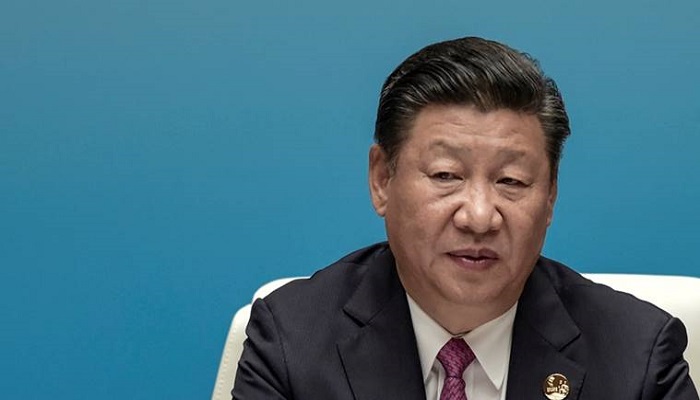
A country is valued on the basis of its economic conditions as well as the human rights of a person. But that does not seem to be the case for China.
After five years in prison and three more confined by guards at home, Chinese human rights lawyer Gao Zhisheng could take no more.
With the help of friends and a willing driver, Gao escaped his state security captors on Aug. 13 and found shelter in the home of a stranger who made him pork dumplings – the first real meal he’d had in years.
Gao’s freedom was short-lived, however. Less than three weeks later, the police tracked him to the city of Jiexiu in Shanxi province and searched house-to-house until they found him, Li Fawang, a supporter who helped him escape, told The Associated Press. Gao’s whereabouts are now unknown.
Gao’s plight shows what activists say is a drastically deteriorating situation for rights campaigners under the rule of President Xi Jinping, who emerged from a party congress last month as the most powerful Chinese leader in a generation.
With China’s economy continuing to boom and its global influence on the rise, Xi is more than ever convinced that China requires a highly authoritarian, one-party system, analysts say. At the same time, a growing alienation from politics among young Chinese is pushing the party to reinsert itself into its citizens’ daily lives.
“The outlook for human rights is grim and we see no sign of improvement,” said Maya Wang, Human Rights Watch’s Hong Kong-based researcher, who describes the current repression as the worst since 1989’s bloody crackdown on pro-democracy protests centered on Beijing’s Tiananmen Square. “We feel we haven’t hit bottom yet.”
Wang and others point to the growing number of secret detentions and closed-door trials and the disregard for due process. Authorities are also increasingly willing to ignore health problems among political prisoners, who campaigners say already face solitary confinement or harsh conditions locked up with hardened criminals who dish out beatings and other abuse.
The United States under President Donald Trump doesn’t appear to be offering much support. Trump’s failure to raise human rights during his visit to Beijing last week “lent the Chinese government legitimacy when it is one of the worst human rights offenders,” Wang said.
China’s government rejects accusations of human rights abuses, insisting it runs the country according to law and that no outsider has the right to challenge its “judicial sovereignty.” Yet it also dismisses the suitability of a multi-party system or Western notions of “universal rights,” warning such notions to threaten to undermine Chinese society and undo its economic achievements.
The situation has worsened since the party congress, said Thailand-based Chinese campaigner Wu Yuhua, also known as Ai Wu.
“Conditions are deteriorating, with prisoners of conscience suffering from torture, degradation, harassment, and discrimination,” Wu said. “I’m very pessimistic about the prospects for human rights in China.”
Meanwhile, concern remains high for Gao, 53, who had won international renown for defending members of the outlawed Falun Gong spiritual movement and fighting for farmers’ land rights. His public denunciation of the torture he said he had suffered in detention appears to have made him a particular target for abuse.
When Gao was released from prison in August 2014, the formerly outspoken lawyer could barely walk or speak, raising concerns that one of the most inspirational figures in China’s rights movement had been permanently broken. Years of abuse and poor nutrition have caused his teeth to fall out, forcing him onto a liquid diet.
While under extra-legal house arrest, he was constantly watched by dozens of uniformed and plainclothes officers stationed directly outside his rural home in Shaanxi province. Despite that, he managed to communicate sporadically with the outside via messaging apps, even releasing a book about his time in prison, three years of which were in solitary confinement.
A Human Rights Watch researcher and others say there are more secret detentions and closed-door trials and less regard for due process. Political prisoners are held in harsh conditions and their health is ignored.
Maya Wang of Human Rights Watch describes the situation as the worst since 1989’s crackdown on pro-democracy protests in Tiananmen Square. “We feel we haven’t hit bottom yet.”
China’s government rejects accusations of rights abuses but it also says no outsider has the right to challenge its judicial sovereignty and dismisses universal rights as a Western notion that would undermine Chinese society.

Post Your Comments